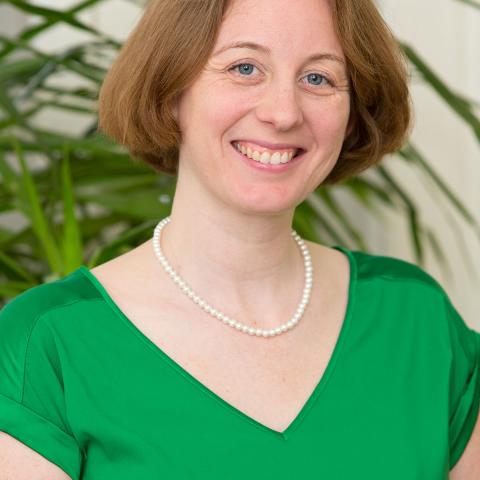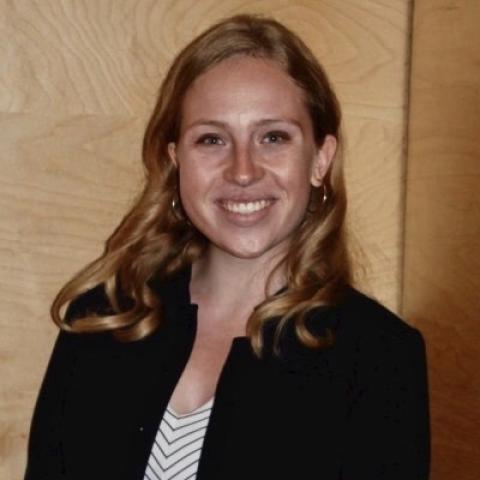Women on the VP Short List are Qualified to Serve Today or Tomorrow
“There are a number of women who are qualified to be president tomorrow.”
These words from former Vice President Joe Biden made headlines back in March when he solemnly pledged to pick a woman as his running mate during the Democratic primary debates. The promise elicited mixed feelings from viewers – some were pleased, others felt slighted – but it once again put gender at the center of the conversation on political credentials. Research has demonstrated that women are held to higher standards by voters and question their own qualifications to run at all, leading to significant differences between the quality of women and men officeholders. Not surprisingly, women increase the quality of representation within institutions, and the high standards they set up the ante for their male colleagues. While this may be good for constituents who benefit from better candidates and representatives, it means women are often working harder just to end up in the same position as men.
This phenomena has been called running a dual campaign by CAWP scholar Kelly Dittmar. Women must prove themselves to be not only the best candidate for the job — but also that they can win. This juxtaposition reminds us of the false myth of campaigns as meritocracies. If women are the most qualified, why isn’t that enough? See all of Hillary Clinton 2016. At the same time, women are required to prove themselves again and again, and due to gender norms, they must do so without appearing as though they actually want the job. While women must have experience and talents in abundance, they cannot have the ambition to match. Knowing that these higher standards exist and the tightrope qualified women must walk, we’re going to take on some of this additional labor and provide the receipts proving the extensive and diverse qualifications of the women on Biden’s short list.
Here we explore the veepstakes through the lens of prior experience. Women in politics do not always share the same professional backgrounds as their male counterparts. Because of gender segregation in the workplace, women’s occupations and social networks have not always been a natural trajectory for a career in public office. These differences have meant women have had to make the case for their qualifications and work very hard for the same campaign support men receive. The women on Biden’s shortlist come from a variety of backgrounds, each one bringing vital skills to the table.
Some of this year’s vice presidential contenders boast executive experience. These include Atlanta Mayor Keisha Lance Bottoms, New Mexico Governor Michelle Lujan Grisham, and Michigan Governor Gretchen Whitmer. All three have garnered national attention in recent months, each drawing on her unique qualifications to lead a robust response to the COVID-19 pandemic. Bottoms, a former attorney and Atlanta city councilwoman, has implemented a controversial mask mandate in all public spaces and is encouraging residents to stay home rather than rushing the reopening of businesses. Accustomed to standing her ground against Republicans, Bottoms has not hesitated to challenge Georgia Governor Brian Kemp on his fast-tracked recovery plan and unwillingness to heed the recommendations of medical experts. Lujan Grisham, the country’s first Democratic Latina governor, has drawn on her extensive knowledge of public health policy to control the outbreak. The former health care consultant, congresswoman, and New Mexico Secretary of Health took swift and decisive action to mitigate the crisis that is now paying off: epidemiologist Helen Wearing remarked that “hundreds of lives were saved because of what the state did early on, and that’s using conservative estimates.” Whitmer has spearheaded an aggressive containment strategy in Michigan, one of the hardest hit states, which has been lauded by progressives and condemned by conservatives. The former state legislator and Ingham County prosecutor implemented some of the nation’s strictest stay-at-home orders, which were well-intentioned but sparked right-wing rebellion.
Despite the significant challenges they have all faced in keeping the virus under control, these women have demonstrated executive experience during a crisis, which is essential for a vice president in 2020. Perhaps the most important criteria for a vice president is readiness should the moment require them to step into the presidency. Historically, women have held few executive posts like governorships that would demonstrate the kind of individualistic, buck-stops-here leadership many consider essential for a president. These women have those bona fides. But, as we know, having the goods is not always enough.
Stacey Abrams, who almost became the governor of Georgia in 2018, is also a potential candidate. Her resume is similar to that of President Barack Obama, who was a community organizer and state legislator prior to his U.S. Senate tenure and ultimately successful presidential campaign. Abrams narrowly lost her statewide election to Republican Brian Kemp amid concerns about voter suppression. Abrams, a former state legislator, attorney, and college professor, has since risen to national prominence as a full-time voting rights activist. She has started two grassroots organizations – Fair Fight and Fair Count – to ensure that all people are counted in the Census and that their voices are heard at the ballot box. Some have questioned her readiness for the vice presidency, as the highest title she has held to date is minority leader of the Georgia House of Representatives. Others are inspired by the zeal she could bring to the ticket. While she does not presently hold elected office, she has become an important Democratic voice on the preservation of democratic values. Will Biden consider her potential, like Obama and many men like him have been afforded, or require a more lengthy record to see her worth? If we are to expand the pool of potential political leaders beyond what has long been the status quo, we have to not only credit men and women equally for their accomplishments, but also expand the types and sources of qualifications we seek and value in candidates and officeholders.
Susan Rice, who served as the national security advisor and ambassador to the United Nations under President Barack Obama, is reportedly on the top of Biden’s short list. Rice would be an unexpected selection, as she has never held elected office, and her name recognition is likely much lower than that of other women being considered. Her foreign policy chops, however, might be an asset when it comes to repairing our alliances and reestablishing the U.S.’s global reputation. They are also especially important for women, who are less likely than men to be viewed as holding foreign policy and defense expertise. Joe Biden brought foreign policy experience to the ticket when he ran as vice president with then-Illinois Senator Barack Obama, who did not have extensive international experience. Rice’s background then may be a redundancy this time around with Biden at the top of the ticket.
Different from executive posts or ambassadorships, legislative experience may also be an asset for a vice president. Vice President Joe Biden, as a former long-serving senator, played a key role in policymaking under President Obama — including during the adoption of his signature legislation, the Affordable Care Act. Biden is considering a handful of members of Congress from both chambers. California Senator Kamala Harris is seen by many as the favorite. Harris ran a strong campaign for president this cycle and has amassed a national following since her election to the Senate in 2016. She is also, though, a former prosecutor whose controversial record, which has been decried by many in the Black community, could be a liability at this moment in history. Massachusetts Senator Elizabeth Warren, who also ran for president this year, is another possibility. Warren, a former professor and economist, is a staunch progressive. While some find her divisive, her experience handling bankruptcy and establishing the Consumer Financial Protection Bureau (CFPB) might prove useful in helping the country rebound from economic depression. Illinois Senator Tammy Duckworth has received renewed attention in recent weeks, after Fox News host Tucker Carlson accused her of hating America. An Iraq War veteran and double amputee with a moderate track record, Duckworth’s valiant military service and legislative experience certainly qualify her to be commander-in-chief and challenge biases that women are less prepared to handle issues of national defense. They also place her in direct opposition to President Trump, whom she calls “President Bone Spurs” in reference to his avoidance of military service. Running and winning Senate campaigns are made especially difficult for women, so these women have certainly proved their wider appeal.
The Biden campaign is also considering women members of the U.S. House. Representative Val Demings (FL-10) appears on just about every speculated version of Biden’s shortlist. Demings rose to national prominence when she was selected as one of the House’s impeachment managers in December 2019. Prior to her run for Congress, Demings served as the chief of the Orlando Police Department, a role which may now be met with scrutiny but may also uniquely position her to fundamentally change policing in America — a top priority among Democratic voters. Representative Karen Bass (CA-37), the chair of the Congressional Black Caucus, is one more potential pick. Formerly the speaker of the California Assembly, Bass is a progressive with a history of working across the aisle to pass bipartisan legislation. Her deft leadership on the House’s most recent police reform bill would make her a prudent choice.
All but two of the women listed here have served in state or federal legislatures. Working within raced and gendered legislative institutions designed to marginalize women like them, Whitmer, Abrams, and Bass excelled in their state legislative roles, rising through the ranks to hold leadership positions.[1] Their ability to garner the support of their party colleagues suggests they are adept at networking, bringing factions together, and strategic decision making like where to assign bills and which committees to place members on for the best outcomes. This is consistent with what both women state legislators and women in Congress report themselves; in previous CAWP research, they note that they see themselves and are seen by their colleagues as coalition builders and responsible for bringing new voices to the process. These qualities may be important for the next vice president of the United States and are just as important as experience garnered through executive positions. As the presidential campaign continues to define leadership as masculine and individualistic, highlighting legislative experience where one is part of a collective required to work with others to accomplish goals helps to dilute political norms centering masculinity. Whether in Congress or state legislatures, women have gained valuable collaborative experience to bring to the executive branch.
Americans are aware of the higher standards to which we hold women candidates. Several talented Democratic women ran for president this cycle, but none of them were ultimately able to secure the party’s nomination for the top spot despite their incredible resumes. While some may view the selection of a woman vice president as a consolation prize, it is a step toward better representation of women. In declaring he would choose a woman as VP, Biden has given us all another chance to examine the different standards to which we hold women and men. Aware of the frequent demand for women – versus men – to prove themselves as capable, here we have provided evidence of potential women nominees’ extensive and valuable experience.
There have always been women qualified to serve. The question is — when will those qualifications be deemed enough? Today or tomorrow?
[1] CAWP data shows that nationally women serve in leadership positions proportionally to their presence in legislative bodies. However, women leaders are not evenly distributed across states, with some states not having any women in legislative leadership positions.







